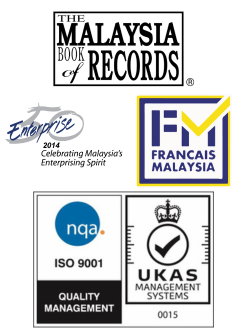Author: Simon LOW | 30 March, 2022
With the rapid growth of populations, it brings greater pressure on the environment and threatens the fresh water supplies source. Indah Water Konsortium (IWK) is a national sewerage company in Malaysia, which is responsible for developing and maintaining a modern and efficient sewerage system for all Malaysians. There are 3 main types of sewerage systems used in Malaysia: Connected System, Individual Septic Tank (IST), and Communal Septic Tank (CST). IWK provides desludging services for non-connected sewerage systems in addition to operating and maintaining public-connected sewerage systems.
In order to ensure that the collection from the various categories of customers is sufficient to finance the development and management of a modern and efficient sewerage system in Malaysia, the Government established the tariff of charges based on the principles of affordability and equitability. Basically, the sewerage charges are divided into four categories, namely, domestic households, commercial premises, industrial premises, and government premises [1].
For domestic households, typically the sewerage services on a monthly basis are charged at a minimal cost. Table 1 below lists the monthly charges for the domestic households with either receiving individual septic tank or connected sewerage services. The government quarters in categories A, B, C, D, E, F, G, H and I are as defined in Chapter E of Government General Orders [2]. These domestic households include low-cost houses, houses in kampong, new villages and estates, premises, and government quarters.
Septic tank is classified into two types which are individual septic tank (IST) and communal septic tank (CST). Communal service tank serves more than one premise [3]. Under the Water Service Industry Act 2006, IWK is not responsible to maintain septic tanks. The maintenance of IST is the responsibility of the premise’s owner while CST is the joint responsibility of the owners of those premises. Table 2 below has shown the desludging rates for different types of houses and sizes as well as different types of sewerage systems under domestic premises.
Within 30 days of warranty period after the desludging date, no charge will be imposed if they request again for the desludging service. The repeated desludging rate within 24 months is as per the rate customer paid during the first desludging work. For domestic premises, there are 2 payment methods, customers can either pay fully through Payment On Service (POS) before or after completion of desludging work, or by normal billing every 6 months after desludging work is done. Except for CST, the payment is only billed as the tank is connected to multiple premises.
Example:
Domestic Medium Cost (Premises & government quarters in category A, B, C, D & E)
The rate for each desludging service for Individual Septic Tank (IST): RM144.00
Monthly charge (Divided by 24 months): RM144.00 / 24 months = RM6.00
Total amount for each payment (6 months): RM6.00 x 6 = RM36.00
For commercial premises, monthly sewerage services charges are the sum of the Basic Charge based on the Annual Value of premises and the Excess Charge based on average water consumption exceeding 100 m3. The additional charge is 30 cents per m3 for water consumption over 100 m3 but less than 200 m3, and 45 cents per m3 for water consumption more than 200 m3. The water consumption readings will be based on state water supply company readings.
For industrial premises, the sewerage charges are calculated based on the total number of employees. Sewerage services for industrial premises can be divided into two types, namely individual septic tanks services and connected sewerage services. The rate based on the number of employees is RM 2.00 per person monthly for the industrial premises with individual septic tanks services and RM 2.50 per person monthly for the industrial premises with connected sewerage services.
Apart from that, government premises have to pay for the sewerage bill as well. Monthly sewerage services charges for government premises are calculated as the sum of fixed basic charge determined by the type of sewerage services and excess charge determined by the average water consumption exceeding 100 m3. The monthly basic charges for the connected sewerage services and septic tank sewerage services are RM 40.00 and RM 25.00, respectively. Monthly excess charges will be 45 cents per m3 and 95 cents per m3 for water usage more than 100 m3 and 200 m3, respectively.
For commercial and industrial premises, a 30-days warranty is applicable for the desludging services, except for government premises, which will have a 24-month warranty. These three premises could pay by either normal billing or through Payment On Service (POS), depending on the customer’s preference.
Under Water Service Industry Act 2006 [Act 655], Section 65(3), the owner, management corporation, or occupier of any premises that use septic tanks may be fined not exceeding fifty thousand Ringgit Malaysia (RM50,000.00) if they do not desludging their septic tank on regular basis to ensure the efficiency of the septic tank [4]. Starting on 30 March 2021, desludging service must be done at least once in two years as per Water Services Industry Act (Desludging Services) 2021. Within 14 days, the nonrespondent will be issued a reminder [5].
Frequently, the issue of who should be paying for the sewerage charges owed by the previous owners arises. According to Sewerage Services (Charges) Regulations 1994 [2], any user who sells or transfers any premises without notifying IWK is still responsible for the sewerage charges associated with that premises. In other words, the new owners are not liable to pay the sewerage charges owed by the old owners. For the owners who rent their premises to others, the obligation of which party to pay the sewerage charges should be specified and fully stated in the written tenancy agreement to avoid conflicts. However, according to the Sewerage Services Act, Regulations of Charges 11, if the occupier or tenant of the premises does not pay the sewerage charges, the owner is jointly obliged to pay the sewerage charges.
In fact, there is an exemption for the sewerage charges. As specified in Sewerage Services (Charges) Regulations 1994, any premises or part thereof that is used exclusively for religious or charitable purposes shall be exempted from the monthly sewerage charges. Besides that, if the premise has been vacant for more than 6 months, and the monthly water consumption is less than 1m3, the owner can show the water bill and the electricity bill to the IWK to apply for exemption of sewerage charge.
In conclusion, as a consumer, we should take our responsibilities in paying the sewerage bills because Indah Water Konsortium (IWK) provides us with clean water for daily uses. Additionally, improving and upgrading all sewage treatment plants throughout the country requires significant funds, the majority of which are derived from tariff charges. As a result, customers’ failure to pay their bills may cause negative impact on IWK’s refurbishment and upgrading programme. In the long run, it will have a detrimental effect on water resources and the environment. Thus let’s be a responsible consumer and pay on time!
Simon LOW
General Manager
IPM Professional Services Sdn Bhd
References:
[1] Indah Water Portal | Charges. Retrieved on 29th March 2022 from https://iwk.com.my/customer-charges
[2] Indah Water Portal | Charges – Domestic. Retrieved on 29th March 2022 from https://iwk.com.my/charges-domestic
[3] Individual Septic Tank Owners Required to Desludge and Care for Their Septic Tank. Retrieved on 29th March 2022 from https://www.iwk.com.my/cms/upload_files/pressrelease/press_file_000070.pdf
[4] Laws Of Malaysia Act 655 Water Services Industry Act 2006. Retrieved on 29th March 2022 from https://www.paab.my/wp-content/uploads/2019/07/WSIA_ENG.pdf
[5] The Star. 2021. “It is now mandatory to desludge your septic tanks”. Retrieved on 29th March 2022 from https://www.thestar.com.my/starpicks/2021/06/14/it-is-now-mandatory-to-desludge-your-septic-tanks



